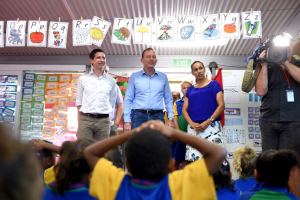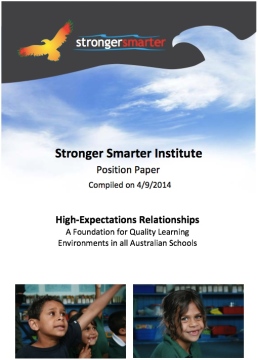One thing that does really excite me at the beginning of every school year is that first day of school. Some of our children will be excited and nervous. Some of us parents will be nervous too, worrying about the wellbeing of our little ones and their ability to cope without us. Other parents will be rubbing their hands with glee and trying to conceal that smile they desperately try to hide.
In my life I have seen the first day of school from many different angles. I still remember my first day at school and coming home thinking “That wasn’t too bad, maybe I should do that again some day!’ Was I in for an extended shock? According to my mum I was making plans to get married after my first day at school. I guess up until then I had never been exposed to so many girls with pretty new dresses.
These days a first day of school ritual in our house is a special big breakfast for our three kids to start off the school year; bacon, eggs, toast, pancakes, juice, the works. We then go out into the garden and take lots of photos. Here’s a tip from my experience. In some of the photos get the kids to hold up fingers to signal what grade they are in. It makes it easier to figure out many years down the track.
As a teacher and as a school principal it was always nice to see young children turn up with a sense of nervousness coupled with excitement and enthusiasm. I’d see some little ones cruise on up as if to say ‘I got this!’ leaving their heartbroken mums and dads sobbing in their wake. I’ve also seen little ones literally horizontal as their teacher holds them while their parents try to unravel themselves from their unrelenting clasp of the their tightly clawed hands.
Whatever the case, school ultimately is a really great place to be and, as much as we worry as parents, our kids usually get into a rhythm. As parents we might worry if they’ll handle the work, be safe from bullies, have a teacher that will be nice to them, or push them to be the best they can be. Some of us might find ourselves worrying about how we are going to pay school fees or for that iPad that all might have to have, or that particular uniform they ‘have’ to wear.
These are sometimes challenging circumstances, but they can usually be overcome by keeping in regular touch with people at the school. For some of us this might seem daunting because school may not have been that kind to us when we were there, but take it from me, schools, principals and teachers have changed a lot compared to what they were many years ago.
Having been in hundreds of schools throughout Australia, my very strong belief is that principals and teachers are mostly caring and decent people who want the best for our children. Most teachers genuinely want us to be involved in our child’s education. Our role as parents then is to work with teachers to share and nurture the dreams and aspirations of our children. Be on the lookout for teachers who might have stifled expectations and be unrelenting, yet amicable, in your quest for high expectations that let your child flourish at school. When teachers know you are serious, they will take your child’s education more seriously.
Good luck to all those children starting school today, particularly those starting in prep and those starting high school. Let’s get behind them and help them to have a great year at school where they can be at their very best. They are all like stars in the sky: all of them born to shine.

